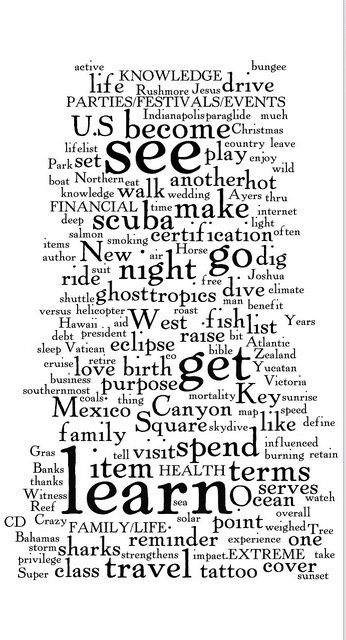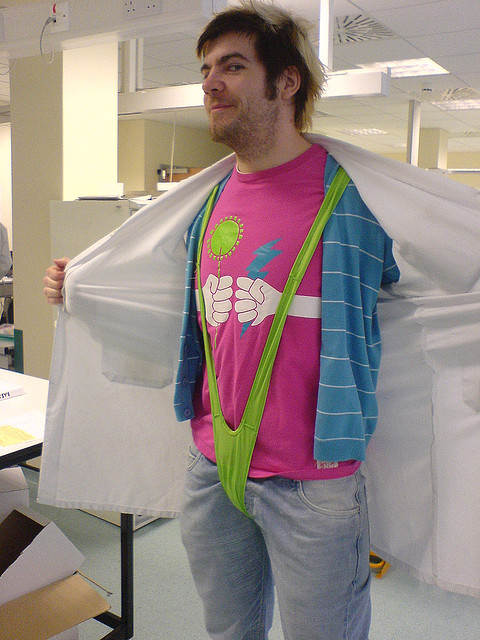
How’s your travel vocabulary? Have you been keeping up?
Here’s a list of travel-related words that have been officially recognized by the Oxford English and Merriam-Webster dictionaries.
Mankini
Official Dictionary Definition: a brief one-piece bathing garment for men, with a T-back.

How it Relates to Travel: Popularized by the movie Borat, this is one fashion-trend that should have never made the journey from the film world to the real world, but according a Google-image search and the Oxford English Dictionary, the trend has become widespread enough to warrant an official place in our vocabulary.
Couch-surfing
Official Dictionary Definition: Staying the night at the home of another person, especially a stranger, for free
How it relates to travel: The best invention in the world of budget travel since the youth hostel, couch surfing was a term first coined by the creators of the couch surfing website and social networking site couchsurfing.com. The website has been around since 2003 and currently has 3 million members in 246 countries. Clearly couch- surfing is by no means a new word to the lexicon of most season travelers, but as it is with most new dictionary entries, the word needed to have reached a significant level of popularity before it could make the leap from slang to official English word.
Ego-surfing
Official dictionary definition: The act of searching the Internet for instances of one’s own name or links to one’s own website
How it relates to travel: Travelers used to use photo albums, slide-shows and the stamped pages of their passports to show off their travels, but now, in the social media-rich world we live in today, they use the Internet. As ‘me-centered’ websites like Facebook, Twitter and Linked-In have grown, so too have the amount of people who regularly google-search their names. Are you guilty of ‘ego-surfing’?
Boomerang Child
Official dictionary definition: a young adult who returns to live at his or her family home especially for financial reasons
How it relates to travel: Many travelers have experienced the shame of having to move back in with the parents after a long stint abroad. In the past, the status of ‘boomerang child’ was temporary. Living at home was merely a two-month transitional phase; time enough to repack and apply for jobs before bouncing off to the next ESL teaching job or voluntourism gig. But as the number of jobs world-wide has decreased, the number of Boomerang Children have increased and the word has taken on a more dismally permanent meaning.
Travel Words Added to the Dictionary in 2010: staycation (a vacation spent at home), tweetup (a meeting or other gathering organized by means of posts on the social networking service Twitter) and locavore (one who eats food grown locally whenever possible).
And on a related note, in researching for this post, I stumbled upon this:
10 of the Most Misused Words on Travel Blogs
From the post: “I was taught very early on, that my travel experiences are incredible enough to most people, without staining my writing with outlandish statements.” (Sidenote: The blog is called “Trail of Ants” which I think is such a unique name for a travel blog, don’t you? I love the blog’s layout, too).
Are you guilty of using any of those words on your travel blog? What travel-related words do you think should be added to the Dictionary in 2012?


